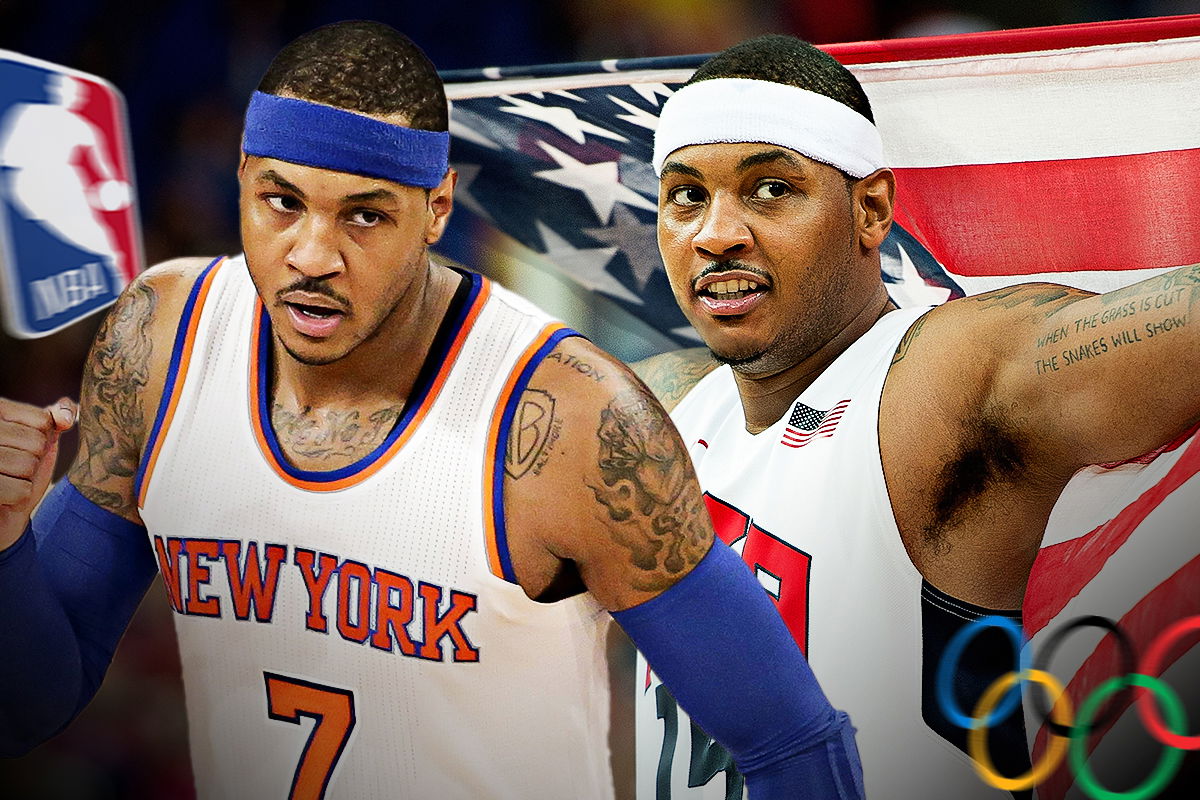
Imago
Credit: Imago

Imago
Credit: Imago
Greatness in basketball has always worn many faces. For some, it’s the dominance of dynasties—Jordan’s Bulls in the 90s, Kobe and Shaq’s Lakers in the early 2000s, and the Warriors’ revolution in the last decade. For others, it’s the individual brilliance of icons who bent the game to their will—LeBron’s all-around mastery, Curry’s range that redefined geometry, Kobe’s obsession that turned nights into legends.
Watch What’s Trending Now!
But greatness isn’t only measured in rings, banners, and MVPs. And that’s where Carmelo Anthony lives.
The boy from Brooklyn turned silence into poetry, carried brilliance that the fans too often overlooked. Yes, rings, titles, MVP crowns, a jersey hanging forever in the rafters—Melo holds none, yet on Saturday, Sept 6, he steps into the Pantheon of the greatest. Perhaps the legendary Redeem Team kept his flame alive, but now, the remembrance is more than the 2008 Olympic gold because his story demands a brighter, unforgettable place.
ADVERTISEMENT
Carmelo Anthony’s run with the National Team & Olympic Saga
Melo gave Syracuse its first and only NCAA title in 2003, averaging 22.2 points, 10 rebounds, and shooting 45.3 percent as a freshman. He poured in 33 points in the semifinals against Texas, then 20 points and 10 rebounds in the final against Kansas, claiming Freshman of the Year and Final Four Most Outstanding Player. After a 30-5 run, he declared for the draft and went 3rd overall in the iconic 2003 class with LeBron James, Darko Miličić, Chris Bosh, and Dwyane Wade, instantly lifting the Denver Nuggets.
Carmelo Anthony is one of only five freshmen to ever be named the Final Four’s Most Outstanding Player
ADVERTISEMENT
Carmelo Anthony’s Olympic debut in 2004 was a trial by fire. On a roster loaded with names like LeBron James, Dwyane Wade, Allen Iverson, Stephon Marbury, and Tim Duncan, Team USA fell to a humiliating bronze, a result branded as the greatest failure in modern Olympic history in basketball. Melo’s impact was limited, just 2.4 points in the 7 games he played; the backlash was merciless. But that setback didn’t define him. It forged him, laying the foundation for his rise as one of the most dominant international scorers Team USA has ever seen.
Top Stories
LeBron James’ Ungrateful Behavior Over Bronny’s $7.9M Lakers Move Irked Jeanie Buss

Jeanie Buss Takes Action After ESPN Reveals LeBron James’ Dirty Laundry
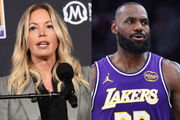
Indiana Fever Announce 2026 WNBA Opener Ft. Caitlin Clark vs Paige Bueckers
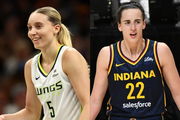
Hoosier’s ‘Improbable Turnaround’ Introduces Caitlin Clark-Driven WNBA Problem for Others – Report

Charles Barkley Challenges ESPN To Fire Him After Harsh Criticism Of Co-Workers
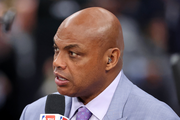
Two years later, he roared back at the 2006 FIBA World Championship as co-captain.
ADVERTISEMENT
Melo shattered the U.S. single-game scoring record with 35 points against Italy. Averaging 19.9 points, 3.7 rebounds, and 1.6 assists, earning All-Tournament honors and the USA Basketball Male Athlete of the Year award. The momentum carried into 2007, where Anthony helped Team USA go undefeated at the FIBA Americas Championship with a 10-0 record. Melo matched Allen Iverson’s 28-point mark in a qualifier before LeBron James surpassed it with 31 in the final against Argentina.
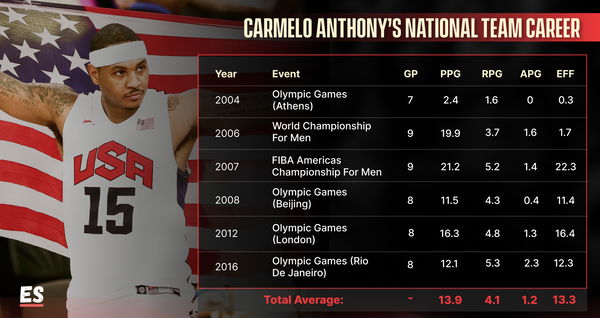
ADVERTISEMENT
Melo: “I’m tired of bronze,…I’m speechless right now. This is my first time ever winning the gold medal.”
By 2008, Carmelo Anthony had rewritten his Olympic story. After the disappointment of Athens, he returned to Beijing as a core piece of the Redeem Team alongside LeBron James, Dwyane Wade, and Kobe Bryant. Tasked with restoring Team USA’s dominance, Melo rose to the moment by scoring 21 points on a perfect 13-of-13 (a U.S. record) from the line against Argentina, then adding 13 in the gold medal win over Spain. He closed the run averaging 11.5 points, 4.3 rebounds, and 1.0 steals. But that wasn’t all.
ADVERTISEMENT
| Anthony’s Olympic journey became legendary in 2016, when he made history with a record fourth appearance for a U.S. male player. |
| With seven rebounds in the 2016 final, Melo cemented himself as Team USA’s all-time leader in rebounds with 125. |
| Finished with 31 games, the most ever for Team USA. Melo also became the program’s career leader in both scoring and rebounding. |
| Crowned USA Basketball Male Athlete of the Year twice. (2006, 2016) |
In 2016, leading a dominant squad, the boy from Brooklyn captured gold after crushing Serbia 96-66. Anthony became the first American man to claim three Olympic gold medals.
ADVERTISEMENT
Loyalty towards the Denver Nuggets
Carmelo Anthony’s world flipped on February 22, 2011, when the Denver Nuggets shipped him and Chauncey Billups to the New York Knicks in a blockbuster that roped in Minnesota. Yet before that leap, Melo stood at the edge of Miami’s Big Three dream with LeBron, Wade, and Bosh. On Podcast P in 2024, he revealed why he stayed out, recalling how his talks with LeBron gained weight only after the bruising years of ’06, ’07, and ’08 with Team USA.
“It was supposed to be Bosh and Wade and then me and Bron going somewhere. We just couldn’t figure out where. We wanted it to be New York. Chicago was also in the fold,” Melo shared. “If we could find a place, let it be Chicago. But I was in Denver, and Bron was in Cleveland. When free agency hit, we tried to make it work.”
Anthony further laid it bare when he reflected on the lockout era.
ADVERTISEMENT
- Melo admitted he lacked the business edge to fully grasp contract battles, but he knew enough to secure his future
- While LeBron, Wade, and Bosh trimmed millions to unite, Melo refused to leave money on the table
- He signed a five-year, $85 million deal in Denver, proud of his city, his powder blue rise, and the legacy he was building alone
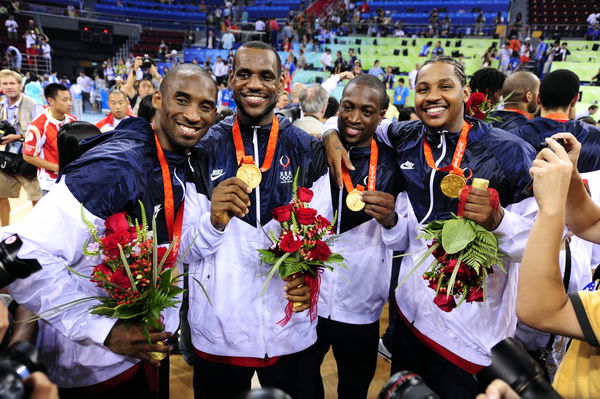
USA Today via Reuters
Aug 24, 2008; Beijing, CHINA; USA players Kobe Bryant (left), Lebron James (second left), Dwyane Wade (second right), and Carmelo Anthony pose with their gold medals following the mens basketball gold medal game against Spain at the Beijing Olympic Basketball Gymnasium during the 2008 Beijing Olympic Games. USA beat Spain 118-107 to win the gold medal. Mandatory Credit: Bob Donnan-USA TODAY Sports
“But imagine me at 23 or 24 years old being the fourth option on a team when I was leading my team every single year. I was finding my way in the league,” the 41-year-old admitted. “And you wanted me to leave that and be a fourth option? I didn’t know if I would be mentally ready for that. It wasn’t about the money; I would have had a different role.”
ADVERTISEMENT
He admitted that teaming up with LeBron, Wade, and Bosh sounded like a fantasy, but the reality was different. He had already locked in a five-year deal in Denver because stability and leadership mattered more than chasing shortcuts. Becoming the fourth option after averaging over 20 points a night felt impossible for Melo. He also pointed out the sacrifice behind Miami’s glory.
LeBron-Wade-Bosh gave up millions to make the Big Three work, something Melo respected deeply but wasn’t willing to do. He valued his $85 million deal and the chance to carve his own legacy in powder blue. Looking back, he knew Miami created something special, but he also believed his choice gave him growth, identity, and authenticity.
Stepped away from the New York Knicks
Well, Carmelo Anthony’s New York Knicks chapter closed in heartbreak in 2017.
Whom to blame? For Melo, it was Phil Jackson. The legendary coach turned Knicks president arrived in 2014, re-signed Melo to a five-year deal with a no-trade clause, then soured the relationship by saying Anthony “would be better off somewhere else” after a 31-51 finish in 2016-17. Jackson was dismissed in June 2017, but by September, the Knicks shipped Melo to Oklahoma City.
“Bro, I don’t understand this s—. To this day, I really don’t understand it. There’s no explanation,” Anthony said on The Why with Dwyane Wade. “Listen, I’m gonna try to give you this in a quick summary. When I left New York, I didn’t leave New York. I got pushed out of New York, Phil [Jackson] pushed me out of New York. I struggled to leave New York.“
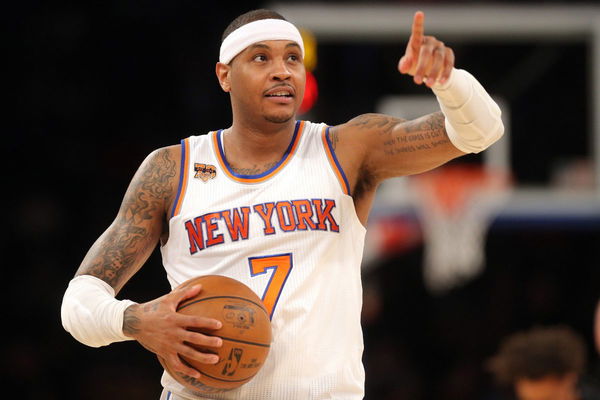
Imago
Credits: Imagn
He further shared, “It took me back to [being] a kid. It took me back to s— always being taken away from you. I did work this hard to get to this point, and it’s just that easy; you can just take it away from me with no explanation. … To this day, I don’t know what the explanation is. I can laugh about it now, but now, that s— was difficult to deal with because you [are] coming from All-Star to I can’t make a nine-man roster?”
It’s surprising to wonder what happened in New York in 2017. You see, Melo carried the Knicks to three straight playoff runs, even reaching the second round in 2013. He left New York with:
10,186 points (team’s seventh all-time leading scorer), 24.7 points per game (No. 3 on the franchise’s scoring average), 412 games, and the single-game record of 62 set on January 24, 2014.
After stints with OKC, Houston, Portland, and the Lakers, Melo retired in 2023. A stunning chapter of 19 years came to a close.
Carmelo Anthony: The face of Jordan Brand
Anthony’s shoe story began before the NBA lights ever hit him, when Michael Jordan chose him as the first signature athlete for his brand. At Oak Hill Academy, a Jordan-sponsored powerhouse, Melo stayed loyal even when he had no brand interest, once wearing Jordans to an Adidas camp.
“In the history of Adidas — and there wasn’t no disrespect to Adidas — I’m the only person that ever wore Jordans to an Adidas camp,” Melo recalled years later.
His bond with Jordan deepened in 2002 during the first Jordan Brand Classic in Washington, DC, locking his loyalty. At Syracuse in 2003, Melo powered the team to a national title in Air Jordan XVIII before entering the iconic draft class with LeBron James, Dwyane Wade, and Chris Bosh. Initially tied to Nike, Melo revealed, “MJ stepped up and said, ‘Look, I’ll pay half, Nike pay half. Look, I’ll take Melo, y’all got LeBron, Converse got D-Wade and [Chris] Bosh.’” That step made him Jordan’s first signature athlete.
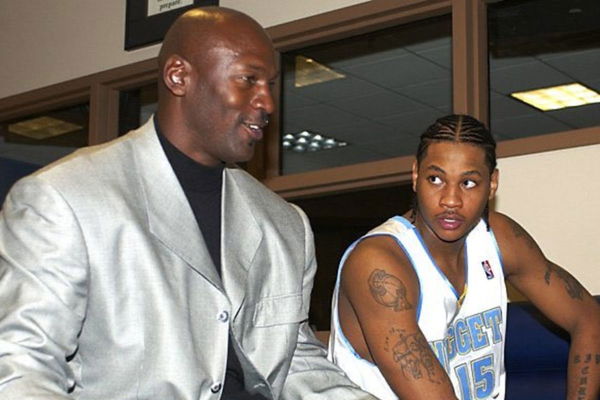
In 2004, the Jordan Melo 1.5 became the brand’s first non-MJ sneaker, backed by Melo’s pulse on youth culture and raw street appeal. His six-year deal paid him $3.5 million annually, with some reports suggesting up to $40 million, the richest Jordan Brand contract at the time. Across 13 collaborations, Melo carved his sneaker legacy. The partnership may have ended, but Melo has never stopped pushing for a comeback. He still wants the Jordan Brand to bring his classics back to life.
You see, Carmelo Anthony was never a footnote; he was the headline that refused to fade. From Syracuse magic to Olympic immortality. From Denver’s powder blue to New York’s storm. His story burned with brilliance and scars in equal measure. He became the face of Jordan’s empire, a scorer’s poet who carried the rhythm of the streets onto the hardwood. Melo never needed rings to stamp his greatness. His name still lingers in the roar of arenas. In the sneakers kids laced. And in the echoes of a game that will always remember his flame.
ADVERTISEMENT
ADVERTISEMENT
ADVERTISEMENT